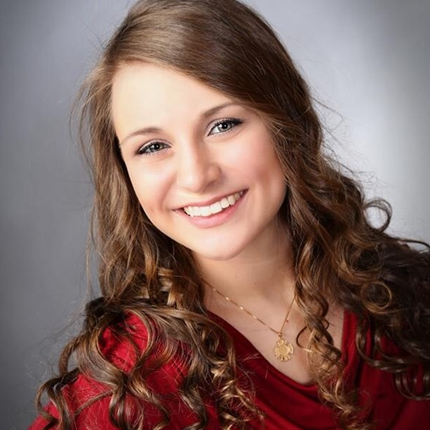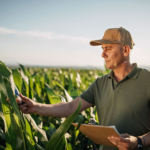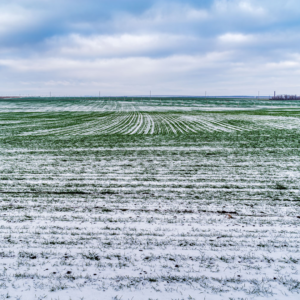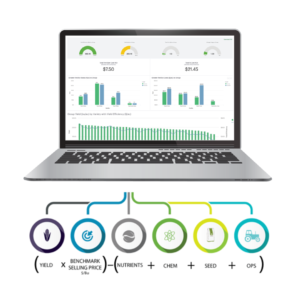
MATT BOWERS: Hello listeners, and welcome back to the Premier Podcast, where everything agronomic is economic. This is your host for today, Matt Bowers, the Strategic Account Manager in the east for Premier Crop. And today, on the podcast, we’ll be joined by Danny Greene and Bethany Bielecki, members of the team at Greene Crop Consulting in southern Indiana. Good morning, Danny. Good morning, Bethany. Thanks for joining us today.
DANNY GREENE: Good morning.
BETHANY BIELECKI: Thanks for having us.
MATT BOWERS: So I just want to start off our conversation today and just get a little bit of background information from both of you guys.
DANNY GREENE: Okay. In 1985, I took a job with Purdue University. I was a research agronomist for 12-and-a-half years and got to work all across the state with corn production, as well as with forage production primarily, and enjoyed that. Pioneer asked me if I would work with them as a technical information manager. And I did that for eight-and-a-half years as a technical information manager in Indiana and Illinois, working with the agronomists and sales reps across those areas. After being in Illinois for a few years, thinking I’d like to get back to Indiana where I grew up, that general area. I decided to carve out my own path and start a crop consulting and crop insurance business, and I’ve been doing this since 2006.
MATT BOWERS: Great. And Bethany, how about you?
BETHANY BIELECKI: So I went to Purdue University, and I graduated with a degree in ag economics. I graduated in 2019. And throughout my time at Purdue, and then the first year after, I worked at a hog processing plant and did a lot of program management. I rebuilt some different things that we had going on in terms of some of the different micro-tracking stuff that we did and really cut my teeth there and got started in this whole career that I’m trying to pursue. It was through that time and through that job that I found out I actually maybe wanted to go to law school and wanted to be in ag law. And the goal and the plan is to eventually work with farmers and entities and their succession planning and their business strategies and things like that. I kind of decided that I wanted to work in ag and work more on the crop side of things throughout law school, though, and this opportunity came up with Danny. We kind of felt that maybe my experience with designing some programs would work with trying to get this Pay Dirt program off the ground. So I’ve been here since March now and loving every bit of it and really enjoying getting this program started and getting to work with growers. It’s been a fun and exciting experience and hugely beneficial.
MATT BOWERS: So, Danny, the one thing that we did miss there in your introduction is the position that you’re holding there with Greene Crop Consulting. If you could, both you and Bethany, if you could just explain that to our listeners, that would be great.
DANNY GREENE: Absolutely. In 2006, I started Greene Crop Consulting, and it was just me for a while, and now we’re up. I started the company, and so I guess I’m the owner, as well as an agronomist and crop insurance agent and whatever else — maintenance person — in the office. Now, we’ve grown to where we have eight full-time employees, and we’re servicing an area across the I-70 corridor and down and really been able to help a lot of people out with their crop consulting, as well as their crop insurance needs. Then, now, we’ve brought on this new program that we’re really excited about.
MATT BOWERS: Great. Bethany?
BETHANY BIELECKI: My role is Precision Crop Advisor. And the purpose of my role is, basically, to help launch and then, eventually, manage and work closely with the growers that are going to be involved in our Pay Dirt program.
MATT BOWERS: Okay, and that Pay Dirt program is the name of your precision program there with Greene Crop Consulting, correct?
BETHANY BIELECKI: Correct.
MATT BOWERS: The next question I have for you guys is: why do you guys feel that farm data is so important to a grower or your growers or any grower out there?
DANNY GREENE: Well, I’ve seen, over the years — talked with many farmers — that even though they’re gathering some data, they’re not utilizing it. It’s just sitting there, or they’ve not put it to use to help them out in the long run. They might glance at it, look at a pretty map, but that’s all. And I think that we’ve got an opportunity to help them out. Not only that, but they don’t know their numbers. They’re just working with crop insurance. We’re working with crop budgets. It’s a lower percentage than you would expect, that owns a business and really don’t know their numbers: what causes them to be profitable. And we want to help them out with that. That’s an area that’s missing that we can really help them.
MATT BOWERS: So, Danny, when you were looking into a precision partner to work with, what were the top three factors that you looked into for a dependable data partner?
DANNY GREENE: We’ve been looking for years for something to come across — and there are different programs that come across — as someone to help us work with our customers’ data. What we were really looking for would be someone, or a group, that would help us — since we’re an independent crop consultant — help us maintain our integrity and what it is that we do and how we approach our customers. And we found that Premier Crop Systems is one of those companies or is the company that can do that for us. We’ve also dug into the platform since we’ve been associated with Premier Crop, and what we found is that there are plenty of very good tools that we can help to identify areas where a farmer might need to make some changes or alterations. We can help them just be at their best, understand their own numbers. And they have very good, clear summaries of the results. Also, I guess we appreciate the team approach to helping us get this right, that Premier Crop is with us in this process.
MATT BOWERS: Great, great. So why was it important to invest in a precision ag service to help your growers manage their data for Greene Crop Consulting?
DANNY GREENE: Well, definitely, as we worked with crop insurance and were asking people about their budgets, very few had a clear idea of where they stood. We know that this is an area that is important to invest in, in ways that we can help the customer move the needle in their operation. With our Pay Dirt program, we found that this is something that will fill that missing link that we had in our operation, that will help tie the economics to the agronomics.
MATT BOWERS: So, Bethany, what would you tell a farmer who is resistant to work with a precision ag service company?
BETHANY BIELECKI: Well, I think my first question would be: why? Why the hesitation? What’s the root cause of the hesitation? With our Pay Dirt program, you’re getting unbiased recommendations. We take out that element of potentially being sold and being manipulated, for lack of better terms, with your data. We’re not doing that. We’re giving you unbiased recommendations. Second, your data’s protected. We’re the ones that are managing it. We’re the ones that are housing it, and we’re working closely with the people at Premier Crop Systems that are housing it. So it’s always protected. That data integrity is always there. Then, third, I would tell them that most of these individuals have already invested in precision equipment. They’ve already got it, so why don’t we utilize that to unlock the potential within their operation? That’s one of the easiest ways that we can, as Danny likes to say, move the needle. It’s because you’ve already got those pieces. Let’s break it open. Let’s take a look at what we can do to improve your current operations and your current programs and systems and things like that with what you are already paying for with this program.
MATT BOWERS: So what are you most excited about to use a service like Premier Crop for your farmers? Danny, let’s start with you.
DANNY GREENE: Okay. Well, I’ve got a background in research, and I understand the value of looking at compiled data and being able to take that and then apply it. And that’s one thing that this program, I think, does a very good job of. It helps us to look at data — actually, even insert some learning blocks — in such a way that we’re able to move the needle with the customer. We’re able to help them understand whether their nitrogen rate or their planting population or whatever it is they want to test, if that’s going to work for them. Or, over time, as we compile that across customers, really have a good feel for giving recommendations, we’re verifying what it is that we’re recommending. And, to me, that’s very important.
MATT BOWERS: Great. Bethany, I’ll turn to you. What excites you about the service for your growers?
BETHANY BIELECKI: Well, the first thing that comes to mind that really excites me is the ability to unlock the economic pieces of it. Like Danny said, we’re coming across a lot of individuals who just don’t know the exact dollars when it comes to their operation. And I think that’s really exciting. I’m a bit of a finance nerd. I enjoy it. I always have. So this is really fun to me, to be able to identify where each of those dollars are coming from and also where they’re going back, in terms of their cost. And it helps me provide guidance to farmers. And I think that that’s also a really crucial piece, that I’m able to be their guide and help them make the best decisions. And that’s really rewarding on a personal level. Then the last piece that I’m really excited about is the practical R&D that’s going to be available to these growers. In my background at IPC, I spent a lot of time doing research and development work, and what we found is that there are multiple ways of going about it. There’s more of the textbook university way, and then there’s actually what’s going to work in practice and on and in an operation. And I think that that’s really exciting, that we can provide growers with usable data from their own farms that they can use across different fields, across different avenues of their business and allow them to make, again, the most informed decisions, which is very gratifying.
MATT BOWERS: So getting that opportunity to turn that farmer’s fields into their own research farm, right?
BETHANY BIELECKI: Absolutely. Absolutely. It’s fun. Most of them, I feel like, are really excited about it. That’s not something that they’re used to, being able to control their own research, I feel like. So, when we present that piece of this program to them, most of them get really excited.
MATT BOWERS: Great. Yeah, agronomy is very much local, and that helps.
BETHANY BIELECKI: Absolutely.
MATT BOWERS: What challenges, as you’ve been talking with your growers and the farmers that you’re working with, what challenges do your customers face with their current data situation?
BETHANY BIELECKI: Most of the guys that I’m coming across have all of this data, but the first thing that they struggle with is organization of the data. Most of them don’t really know where to put it. Some of them are really hesitant to put it in the cloud. Some of them don’t really know how to organize it on a computer. So, first and foremost, I think that having a clean organizational structure for their data is their first hurdle. Then, from there, kind of tying in with that, because they don’t have a good organization structure for it, they don’t have the ability to interpret it and really use it. Some of them may take a look at their yield maps, but they’re not able to really break apart those yield maps and identify what’s going on. And they certainly don’t have the ability to layer all of their data together. Then, coupling even with that, because they’re wanting to keep it to themselves, there’s always that fear of data privacy, as well. They worry about their data being sold, about it being used in a more sinister way, about it being shared with somebody that they don’t want it to be shared with. So I think that it all comes back to: they don’t have that good piece and that good partner that they can work with, that they have trust and security in, and that they have the ability to work with to be able to interpret it and organize it for most efficient use.
MATT BOWERS: So the Pay Dirt program, then, fits in and fills some of those holes, then, as you move forward with your growers.
BETHANY BIELECKI: Absolutely. And I think, for a lot of them, one of their first responses is: ‘Oh, really? So you’re going to be able to not only help me house it, but then help me interpret it, and you’re going to keep it safe too?’ A lot of them are really surprised that we have the ability to deliver all of those things to them.
MATT BOWERS: That’s great to hear. So where do you see precision ag going in the future from here?
BETHANY BIELECKI: Well, I think, personally, precision ag is going to be the future of farming because we don’t have the ability to make more land. And frankly, every single day, we lose land to warehouses, to subdivisions, and so we’ve got to be more efficient with what we’ve got. And I think that precision ag is the way that we’re really going to be able to break that apart, and we’re really going to be able to get the most return off of the current resources that we have available to us. And I think that, as farming consistently becomes more technological — we’ve got all of those pieces — precision ag is going to be the way that we’re going to bust all of that open, and we’re going to be able to pinpoint as much as we possibly can. It’s farming. It’s never going to be perfect, and it’s never going to be predictable either. But precision ag is going to be the transparency piece that we need to be able to get the most out of what we’ve got available to us.
MATT BOWERS: Great. Danny, I’d like to turn to you and ask what benefits can this program provide your customers and the growers that you’re working with, in your mind?
DANNY GREENE: Oh, there are several, and we’ve thought about this a lot. And as we’ve started to roll this out, we realized that with different people, there are different parts of this that are really attractive to them. For some, it might be the planning feature, being able to plan ahead, talk with their banker. Understand what their numbers are ahead of time. That piece alone has been a big advantage to some people already. On-farm research and development, as we’ve talked about, doing the learning blocks: that’s an appeal to many. Economic analysis, yield efficiency score: trying to understand, just get it down to a number that you can compare across the board and make it work. Personal and group benchmarking: that’s another piece that we see that is going to definitely appeal to a different group of farmers. All the prescriptions, coming from one place: in other words, we’ve been working with prescriptions for soil fertility. But now, we’re able to also inlay into that the learning blocks that we’re working with. As we take farmers’ data from their combines, from their tractor monitors, from their controllers, that we can have one place that we are holding all of that for them, as well. So, if they lose something, we’ve got it. Potential for increased yield: we’re able to help them move the needle in the operation because they see that there’s an advantage to what it is — through this program, through this Pay Dirt program — that they’re going to get. And, also, understanding their numbers: where does their profit come from? For them to be able to realize that if I do this, then this is going to be the result or, more likely, to be the result. Farming is full of risk, and so it’s not always that way. But understanding that they can gain, definitely, from using a program like this, that will help them plan, help them understand, help them make data-driven decisions that are going to help them in the future.
MATT BOWERS: If there’s a listener out there that would like to get in touch with Greene Crop Consulting and learn more about the Pay Dirt program, where can they do that and how? And Bethany or Danny, you can both chime in there.
BETHANY BIELECKI: Well, I would say, first and foremost, I would direct you to our website, which is www.greenecrop.com. Then, actually, on there, we have a tab and a page for our Pay Dirt program, and there’s a contact information box. That’s not going to anybody other than me, myself and I. So I get those emails. If you fill that out, you’ll be hearing from me, and we can get in contact from there.
DANNY GREENE: And www.greenecrop.com
MATT BOWERS: Well, I’d like to thank both of you for joining us today and telling us about your Pay Dirt program and your partnership with Premier Crop and what you’re excited about offering out to your growers and other potential growers in the southern Indiana market. And I’d like to thank all of our listeners for joining us today on the Premier Podcast, and be safe out there. And we’ll see you again. Thank you.
RENEE HANSEN: Thanks for listening to the Premier Podcast, where everything agronomic is economic. Please subscribe, rate and review this podcast so we can continue to provide the best precision ag and analytic results for you. And to learn more about Premier Crop, visit our blog at premiercrop.com.





